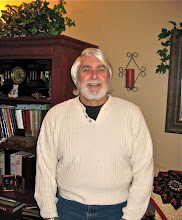With that said, I take no position on the candidates (at least in this blog anyway) as the purpose of this blog is to inform and get people to think, not to advocate a given position. Therefore, I give the following rules of thumb for reviewing candidate records, policies, and stated positions on subjects that may be of interest to you (and us and the country).
- Think for yourself. Don't let others frame your position on a given candidate. Voting for a candidate is a very personal thing. Who is elected has a very personal impact on YOU. Those impacts can range from taxes, to participation in armed conflicts, to your ability to access health care, to your ability to afford a house, car, clothes, or food. Make decisions based on what you know, not on what others say you should know.
- Candidates have taken specific positions in this election. Don't let the opposition tell you the candidate's position. See the candidate's position directly, not filtered through biased lenses.
- Be suspicious of opposition advertisements on television, the Internet, radio, newspapers, or magazines. Opposition advertisements that are directed at the opposition are by nature intended to create a negative impression--they are biased. If the advertisements are sponsored by non-candidate organizations (the often mentioned 527 organizations), they are as likely to be exaggerations, or outright lies.
- Be honest with yourself. If you vote as if you are rich (a very small percentage of the population is rich), but you are not, your vote may not be in your best interest. If you want to vote as if you are rich, wait until you are actually rich. The same goes for middle class and the poor. If you want your neighbor to think you are something other than what you are, that's fine. But when you are in that voting booth, don't delude yourself--vote what you are, not what you want people to think you are. Doing otherwise is downright stupid.
- Put in the work. If you are too lazy to research the issues and positions, don't vote. That is, if you are too lazy to think for yourself, why shoot blindly in the dark? By the same token, don't vote what your friends are voting because you are too lazy to do the research--you are not a cow in a herd, you are a free human-being given an opportunity to cast your vote in a free election--there are millions in this world that are willing to die to have the same opportunity.
- Remember, the political system in the U.S. is by secret ballot. You are under no obligation to share with anyone how you voted. That means that it is none of anybody's business--your family's, your neighbor's, the pollster's, or your buddy's business. There is a reason for this approach--to avoid negative repercussions of taking a particular political stand.
- Beware mass emails and chain letters. About every chain letter out there is deceiving. First, they are being circulated to create a specific position. Second, they are often embellished as they are sent along, so something that may have had an element of truth to it is usually completely distorted by the time it gets to you. (Remember the telephone game you used to play in elementary school where you pass a message verbally from person to person and by the time it got to the last person it was nothing like when it started? That is how a chain email works.) The best a chain email accomplishes is it clogs up your email client and the Internet.
The following links are provided to obtain further information of candidate positions and to verify information:
McCain-Palin: http://www.johnmccain.com/Undecided/WhyMcCain.htm
Ron Paul: http://www.ronpaul.org/ It's difficult to find Congressman Paul's position on specific issues, but this is a starting point.
Nader/Gonzalez: http://www.votenader.org/issues/ Beware that Nader attempts to frame the opposition for you. Make sure you visit their Web sites to find their policies (see recommendation 1 above)
Obama/Biden: http://www.barackobama.com/issues/
If you are concerned about a statement made about an opposition candidate or about your candidate, the following sites are good starting points for understanding if the statements are true, untrue, or downright lies:
Fact Check: http://www.factcheck.org/ This is a non-partisan Web site operated by the Annenberg Public Policy Center at the University of Pennsylvania.
Checking chain letters, mass emailing, and urban legends about candidates: http://www.snopes.com/
Remember, this election is about the future. Use your vote wisely.

